Solo Transat Attracts Class40 Women
Published on November 20th, 2015
When The Transat starts on May 2, 2016 on its course from Plymouth (GBR) to New York (USA), the solo race will include two female sailors in the Class40 category, Germany’s Anna-Maria Renken and her boat NIVEA and Britain’s Miranda Merron and her boat Campagne de France.
This is not the longest race in the world, nor is it the most dangerous but it does have a fearsome reputation and anyone who sets out to complete The Transat should be rewarded for their endeavor and courage. Anna-Maria Renken and Miranda Merron are two of those people.
Despite the fact that Campagne de France is currently in build, Miranda Merron was the first skipper to register for The Transat 2016 back in September. Miranda previously raced in the 2008 Artemis Transat on a Class40 but this time round she will have the pressure – and pleasure – of proving a new boat in its first ever race.
“The Transat is steeped in history and the North Atlantic can be truly awe-inspiring. It makes you realise just how small you are, and can be truly challenging at times. It’s the only race where I have had to shut myself inside the boat for safety reasons in huge seas, and I know that was the case for some other competitors too,” she explains.
“I have only done three solo transatlantic races, at 6 year intervals, and I notice that my mindset has evolved considerably – I rather enjoyed my last solo race last year,” Miranda continues. “I will be competing on the new Campagne de France, the launch of which will unfortunately be very late. Therefore I suspect I will be learning the boat as I go.”
Unlike Miranda, Anna-Maria Renken is somewhat of a solo-sailing novice. “This will be my first solo transatlantic race so I’m excited but I’m also aware I need to prepare myself. I’m basically a solo novice so I think my biggest challenge will be psychological, learning to be with me, myself and I,” Anna-Maria explains. “I am fine with both the technical and physical aspects but managing my mind will certainly be a full-on task.”
The cooperation with NIVEA has run since December 2013 and Anna-Maria hopes to follow The Transat by competing in the Route Du Rhum 2018. Her boat NIVEA has recently undergone a refit in Lorient. “There is no question that NIVEA is a good, strong and reliable boat,” she continues. “I have done many miles and I’m enjoying the Class40 competition. My ambition for The Transat is to do something I’m really proud of. Step onto the dock in New York and say ‘I couldn’t have done more’, that’s what I want from this race.”
About The Transat
The OSTAR (Observer Singlehanded Trans-Atlantic Race) was created in 1960 by a handful of pioneering sailors. The race was organised every four years by the Royal Western Yacht Club (RWYC) from 1960 through to the 2000 event, albeit with a lot of involvement from the French event organiser Pen Duick in the 90s, in order to cater for the demands of the professional campaigns that dominated the event.
After the 2000 edition, OC Sport stepped in to develop the event and acquired the rights to the professional part. OC Sport organised The Transat in 2004 and 2008, the 2012 edition was deferred at the request of IMOCA (the largest competing class).
The RWYC continues to organise a solo transatlantic race for Corinthian and non-professional sailors that is still known as the (O)STAR,. This race usually falls a year after the professional big boat race i.e. 2005, 2009, 2013, 2017. Both the amateur Yacht Club event and The Transat have the right to link to the history of the original race created in 1960, and to the rich history it has produced.
The first race was competed by just a handful of pioneering sailors including Francis Chichester and Blondie Hasler who coined the phrase: “One man, one boat, the ocean.” There has been tragedy, dramatic rescues and exceptional drama since the race began in 1960. Over time The Transat, as it is known today, has evolved and now serves the professional end of offshore sailing. But there are few modern day races that can reflect on such a long and outstanding history.
Monohull IMOCA 60 record: 12 days, 11 hours and 45 minutes set by Loick Peyron (FRA) on board Gitana in 2008. Multihull 60ft record: 8 days, 8 hours, 29 minutes set by Michel Desjoyeaux (FRA) on board Géant in 2004.
Source: The Transat


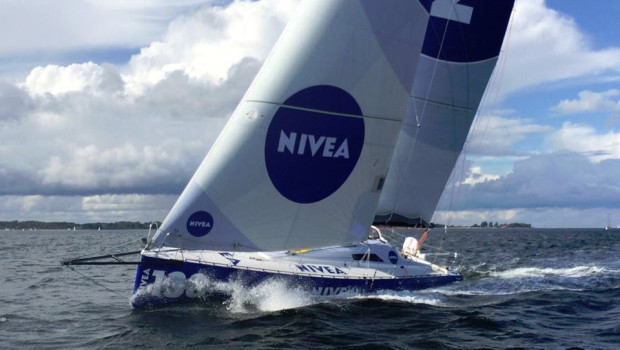
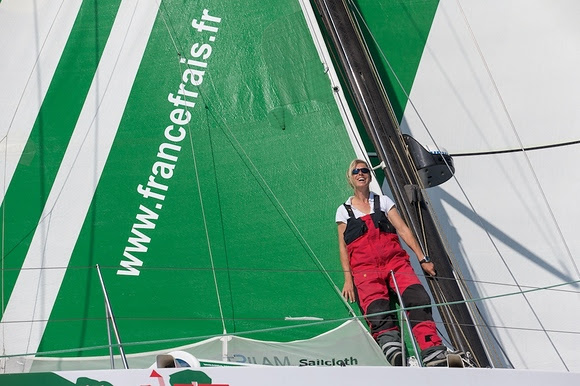

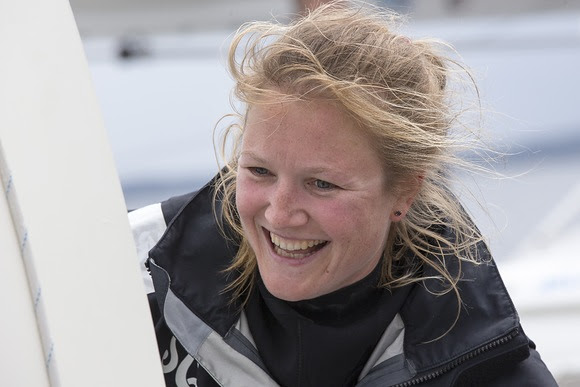

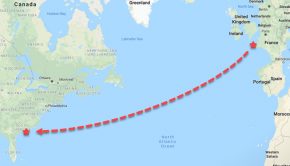
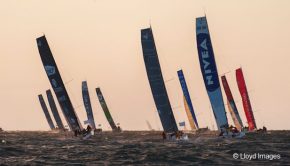
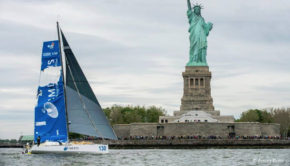
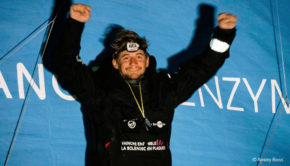
 We’ll keep your information safe.
We’ll keep your information safe.